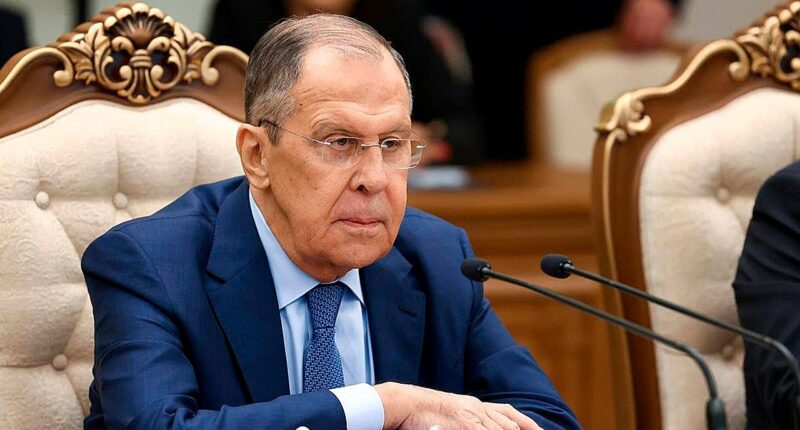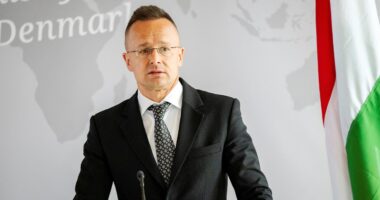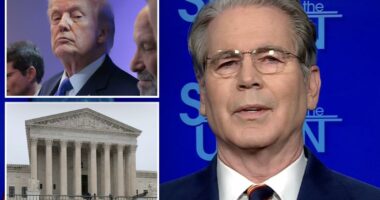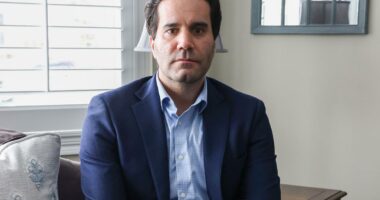Share this @internewscast.com
Russian Foreign Minister Sergey Lavrov has indicated that Moscow might dismiss the latest Ukraine peace proposal from the White House if it fails to adhere to the “spirit and letter” of agreements made during the August Alaska summit between President Donald Trump and Vladimir Putin. Lavrov’s comments highlight the delicate nature of the ongoing negotiations and underscore the importance of previous diplomatic understandings.
During a news conference on Tuesday, Lavrov stated that Russia is currently awaiting the revised version of the Trump administration’s peace plan, which is aimed at resolving the nearly four-year conflict. He cautioned that any deviation from the “key understandings” reached earlier could significantly alter the situation, potentially leading to a fundamentally different context for negotiations.
Throughout the peace talks, Russia has held firm on its demands, which include preventing Ukraine from joining NATO and requiring Ukraine to relinquish control over the remaining parts of the Donbas region as part of any settlement. These stipulations have been a major sticking point in discussions, reflecting Russia’s strategic interests in the region.
In the broader context of diplomatic efforts, John Hardie, deputy director of the Foundation for Defense of Democracies’ Russia Program, pointed out that Moscow’s steadfastness over the past 10 months has been a significant hurdle for President Trump’s diplomatic initiatives. This resistance has complicated the path to a peaceful resolution.
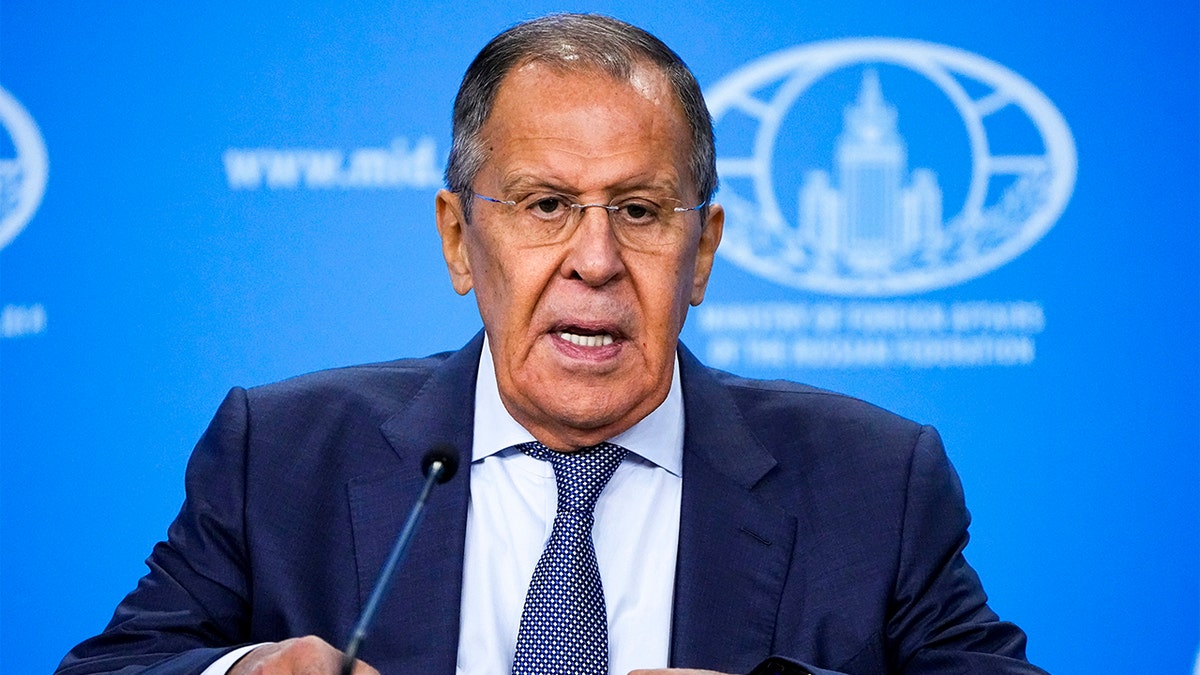
Meanwhile, Lavrov, a seasoned diplomat, remains a central figure in these international negotiations, as evidenced by his recent address to heads of diplomatic missions in Moscow. His statements continue to influence the dynamics of the discussions and shape the prospects for achieving a lasting peace in Ukraine.
John Hardie, the deputy director of the Foundation for Defense of Democracies’ Russia Program, told Fox News Digital Moscow’s intransigence over the past 10 months has been the main obstacle to Trump’s diplomatic efforts.
“The United States has really shot itself in the foot by kind of flip-flopping between strategies. One month you’re trying to pressure the Russians and saying they’re the obstacle to peace. The next minute you’re trying to, you know, force their terms on Kyiv,” said Hardie.
“What we really need is sustained military support for Ukraine and economic pressure on Russia, and Putin has to realize that neither the Ukrainian military nor Western, especially U.S., resolve, are going to falter.”
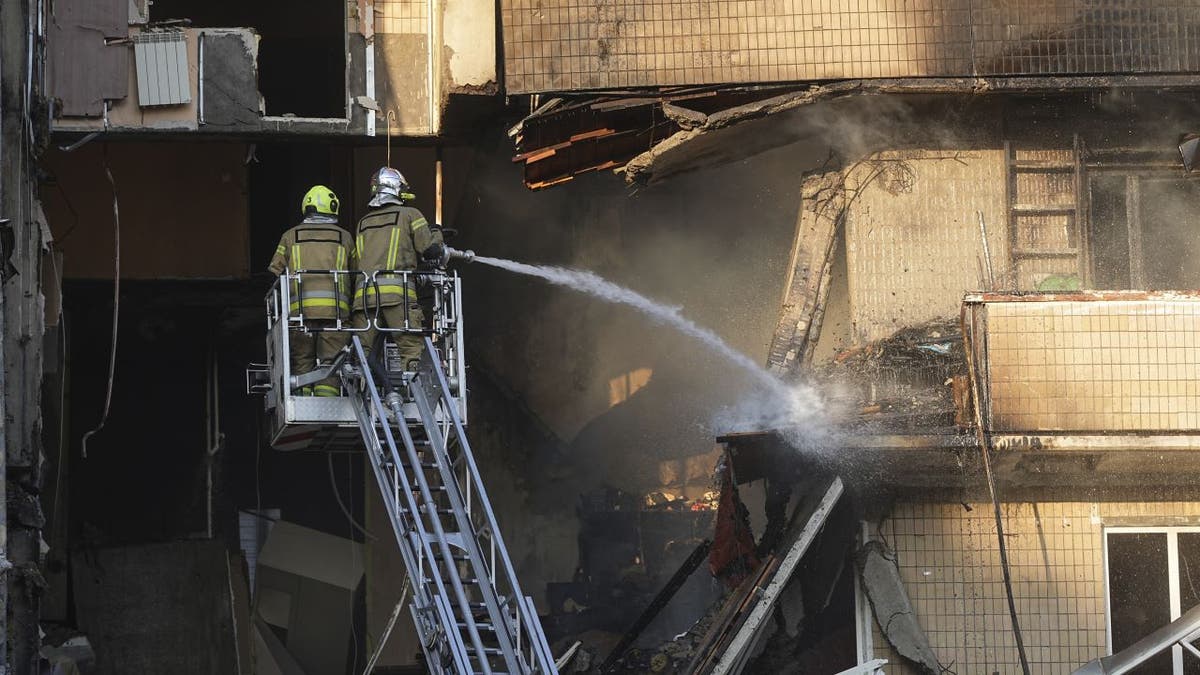
Emergency services personnel work to extinguish a fire after a Russian attack in Kyiv, Ukraine Sept. 7, 2025. (Efrem Lukatsky/AP Photo)
Former CIA station chief Dan Hoffman told “The Brian Kilmeade Show” Tuesday he remains skeptical about an end to the war, arguing the United States lacks the leverage to compel Moscow to halt its invasion.
“Vladimir Putin, his strategic objective has always been to overthrow the democratically elected government of Ukraine. He’ll engage in negotiations, but he does it to ensure that he’s asserting the primacy of Russia in his self-designated sphere of influence,” said Hoffman. “I just don’t see any evidence that Russia is going to pause in their relentless attacks on Ukraine.”
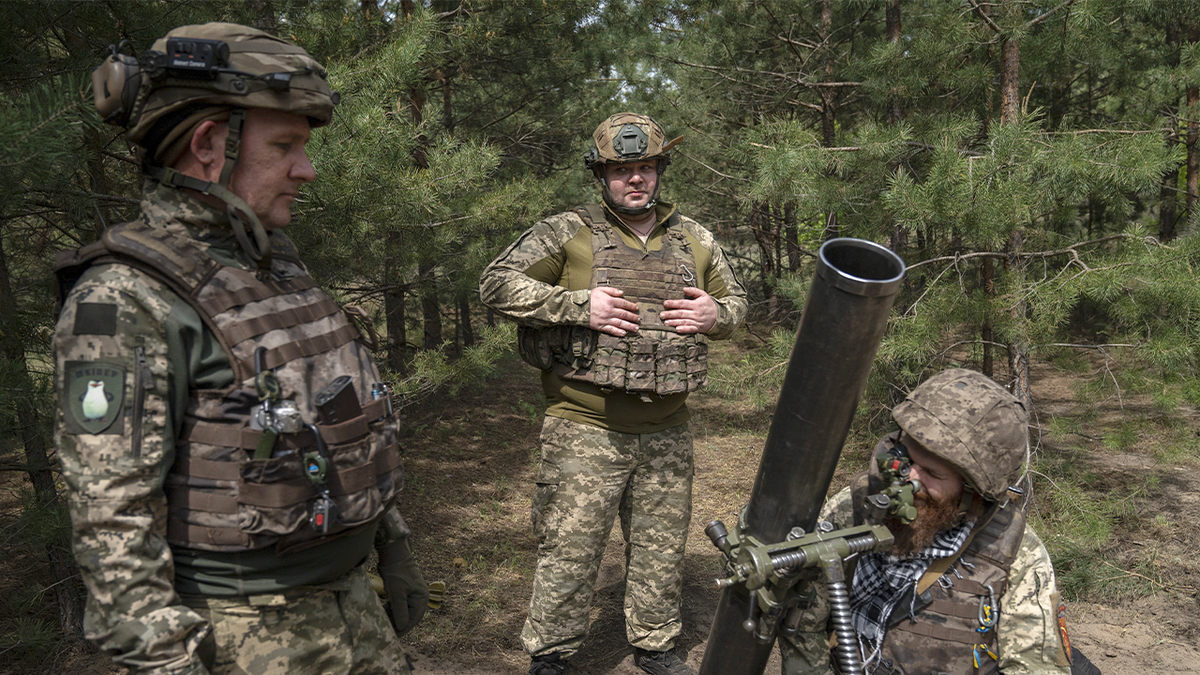
Ukrainian soldiers from the 115th Brigade Mortar Unit conduct mortar training as members of the Anti-UAV unit test an FPV drone inhibitor in Lyman, Ukraine. (Jose Colon/Anadolu via Getty Images)
Ukraine agreed Tuesday to a peace deal to end the war with Russia, but some details still need to be finalized, a U.S. official told Fox News.
U.S. Army Secretary Dan Driscoll met with Russian officials in Abu Dhabi Monday and Tuesday to discuss the framework for a Ukraine peace deal. The U.S. official said a Ukrainian delegation was also in Abu Dhabi and in contact with Driscoll and his team.
